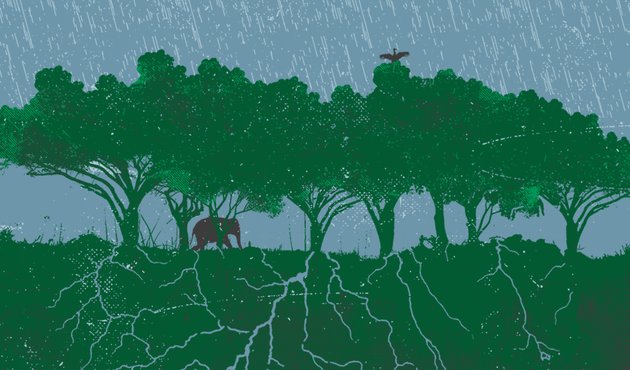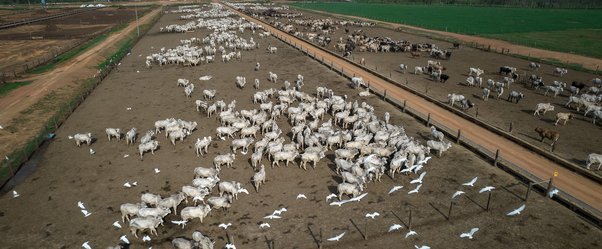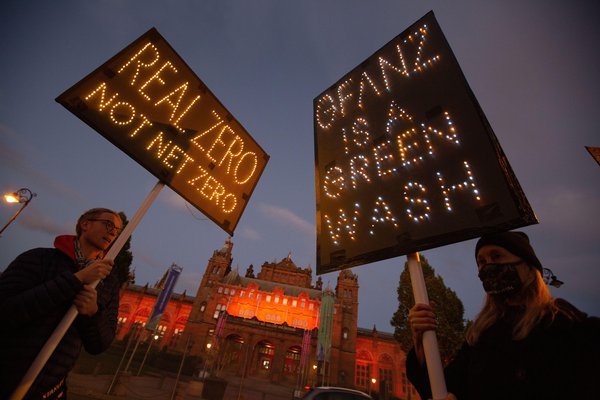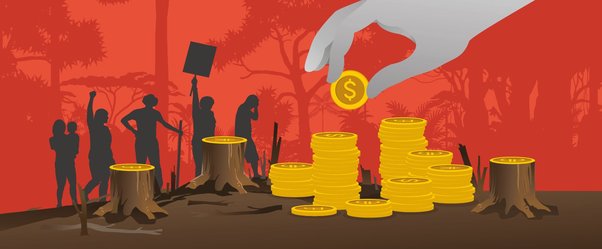We’re tackling the climate crisis by pushing for action on the banks behind the destruction of tropical forests
Forests play a key role in regulating the global climate
They absorb emissions from the air, acting as a great storage system – or "carbon sink" – for the greenhouse gases that contribute to global heating. Forests could provide more than one-third of the total Co2 reductions required to keep global warming below 2°C through to 2030.
Moreover, they act as nature’s air conditioning unit, transpiring water, which forms clouds. When they are felled, regional temperatures rise; this leads to drying and forest fires as seen in Brazil, California, Indonesia, Australia and the Congo Basin.
Tropical forests like the Amazon are particularly important
Tropical forests such as those in the Amazon basin and Congo Basin are particularly critical to climate efforts, because they store the most carbon. They are mainly hardwood and have no dormant period.
Tropical forests are also key for biodiversity: they are home to 90% of the world’s species, including iconic species under threat such as chimps, gorillas, forest elephants and orang-utans
Finally, forest ecosystems are integral to local people’s culture, food, water and livelihoods.

Tropical forests are key for biodiversity – they are home to over half the world’s species
Yet they are being burned and destroyed at an alarming rate
Between 2001 and 2015, over 300 million hectares of tree cover was lost: nearly the size of India.
Deforestation accounts for 8% of the world’s greenhouse gas emissions. If it were a country it would rank 3rd in CO2 emissions, after China and the US.
Without action to end deforestation we have little or no chance of meeting global warming targets with catastrophic consequences for people, particularly the poorest who contributed least to emissions.
A key driver of deforestation is agribusiness
Forests are often destroyed to make way for agribusiness, to produce everyday products such as beef, palm oil and rubber. Plantations of palm oil and rubber absorb nowhere near as much carbon as the forests they replace and have very little biodiversity, while the impacts of cattle farming are well-known.
Hundreds of agribusiness companies promised to eliminate deforestation from their supply chains by 2020. However, many are already admitting that they will not meet their targets.
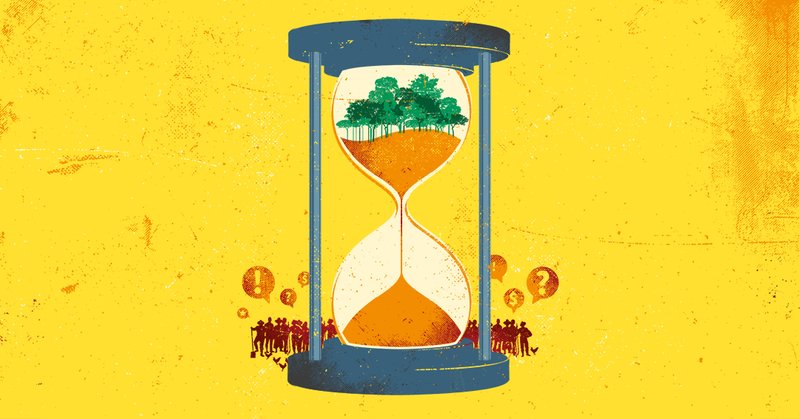
Harmful agribusiness is being funded by global banks
Financial institutions provide a lifeline to agribusiness and all too often show little regard for deforestation risks. As our landmark report, Money to Burn showed, more than 300 banks and investors backed six of the world’s most harmful agribusinesses to the tune US$44 billion from 2013 to 2019.
But governments have the power to stop them
including by requiring financial institutions to identify, mitigate and prevent the risks that their funds are fuelling deforestation.
If governments are serious about the climate crisis they must take action to keep climate-critical forests standing, by tackling the role of finance in global forest destruction.
Read this page in
